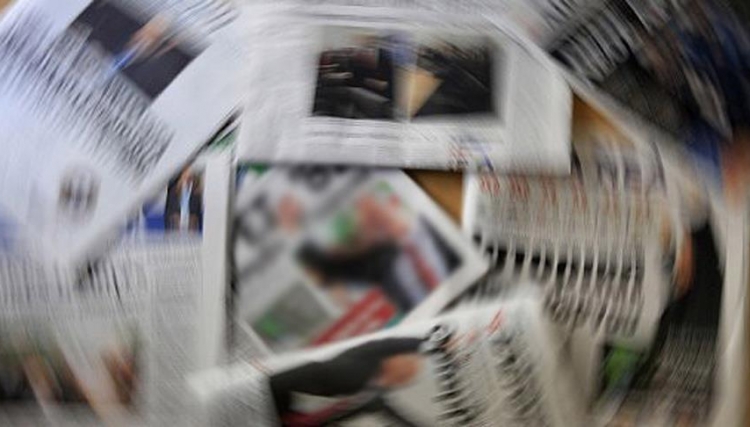Baladi News (Yasser al-Atrash)
Unquestionably, al-Hayat and the Middle East are two of the most prominent Arabic newspapers in terms of their long history and perseverance of traditions.
However, this does not deny that they were involved, like most other Arabic newspapers, in the political game, to become a party in the political disputes and battles in the region. Such a game necessarily requires “falsification, distorting, and misinterpretation”, as happened in dealing with the Turkish case by both newspapers. They played a “smart” game of invoking readers’ emotions by attempting to show Turkey as the only one to blame for the false image of the decline, or even the end, of the Syrian revolution that they are trying to show.
Indeed, the Syrian revolution is far from bias towards any political party. Rather, it is a people’s revolution that is outside any political frameworks or conflicts among feuding political parties or groups.
Due to lack of evidence complying with the political trends of the two newspapers, all the above mentioned allegations are based on the principle of “interpretation” and giving weird explanations that are not compatible with the situations on the ground.
“Moscow Convinces Ankara of Normalizing its Relations with Damascus”
This title was at the top of the home page of al-Hayat newspaper last Thursday. As usual, such an article was written by the opposing Turkish analyst and journalist “Yousef Al Sharif”, who is known for his disagreement with the current Turkish policy. Today, he builds his analytical report, as in every time, on his own explanation of the statements of Turkish Prime Minister Binali Yıldırım and the statements of Turkish president Erdoğan a few days ago.
The report ignored the official denials and explanatory statements of the cabinet and later of Binali Yıldırım himself on Thursday. The Prime Minister literally said “Unless Assad is replaced, nothing would change in the Turkish policy and the republic’s approach towards Syria.”
Such a trend is proved by the situations on the ground, although the new government’s policy expressly provides “nullification of problems” and restoring the relations of the country east and westward, but not at the expense of Turkey’s principles. We remind here that they are referring to the principles and “interests” of Turkey, rather than another country or people.
“Erdoğan Turns his Back to Syrians and Normalizes with Assad”
This was the top headline in the Middle East newspaper that based its analysis on similar interpretation and on citing “false” statements by Assad, or rather, the title expresses the hopes of some editors as was reflected by the Syrian journalist Mohammed Mansour in his analysis of the article.
In a professional critical approach to the subject, and in condemnation to exploiting the Syrian revolution in side political disputes, Mansour said, “When Syrians launched their revolution, the relations between Assad and Erdoğan were at their best, and Syrians did not revolt in the hope that Erdoğan would guarantee them victory or international protection, in a world where representative of the European Parliament were not ashamed of visiting and shaking hands with a war criminal after five years of massacres and genocides against civilians as well as destruction on a daily basis.”
The writer and critic believes that the headline carries a “tone of gloating over Syrians’ grief”, emphasizing that “whether Erdoğan turns his back to them or not would not make Syrians rush to security centers and ask for forgiveness from Bashar al-Assad.”
Very neutrally, Mansour added, “Personally, I am not considering The Middle East as a liar, but days will reveal to which extent its information and headline are creditable as well as its neutrality in anticipating the upcoming situations accurately and far from some of the hopes of its editors.”
We hope, as Syrians in the first place and readers in the second, that both newspapers and all Arabic newspapers, would highlight the fraternal, courageous, and decisive attitudes that our Arabic brothers took, may take, or would take towards our case. Unless they do that, let them reflect courageously and responsibly how the Syrian refugees were attacked and humiliated by the heroic Lebanese army, and how their tents were burned in the miserable camps in neighboring countries. Rather, why do not they leak what is happening in the Arabic decision making chambers that force some battle fronts to stay frozen in Syria and prevent the support for others under threatening of stopping the armament of fighters and the provision of bread for civilians.

